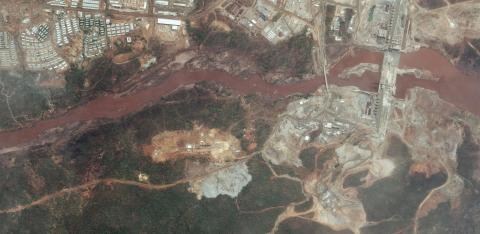The acid test of Australia’s new foreign policy will be longevity. As a nation, can we set an approach that endures? 'A dynamism about it that can carry forward over about 10 years', is how Foreign Minister, Julie Bishop, described the key ingredient for the new foreign policy white paper.
Setting a path for Australia in the world without being buffeted by confronting change is a formidable task. But too often we have evaded difficult choices, sitting back to see what happens next. This has left us vulnerable to shifts of power. We must tell the rest of the world what we are about, before the whims of others dictate it.
Integral to a lasting foreign policy is a grounding in values: the Australian values that govern our own society. Australia is a liberal democracy founded on the rule of law with a long tradition of national social policy addressing the circumstances of people in need. We should base our new foreign policy on this and use our aid and development program to make it happen, building coalitions to combat common global challenges including extreme poverty and climate change.
The prospect of a decline in US soft power in the Asia-Pacific, coupled with what a White House budget official has described as a 'large reduction' in the US foreign aid budget, means we will need to work harder if we are to shore up Australia’s future prosperity and security. As a greater burden of responsibility falls to Australia, we must engage the region in a manner consistent with our values of generosity, cooperation, democracy, egalitarianism and a fair-go. Through a more effective and recognised narrative about Australia, others will know where we stand and how they can work with us.
One of the most effective tools we can use to achieve these ends is our aid and international development program. The program is a partnership between Government and civil society which projects our values and national character, while strategically addressing the root causes of problems that undermine security and prosperity.
Borders mean something to Australians, but they are not a panacea for stopping the effects of disease and climate change. Non-state-based threats - including natural disasters, extreme weather and pandemics - in Australia’s immediate region have economic and security costs and they are indifferent to borders and military might.
Australian aid and development can mitigate and build resilience to climate change by helping communities to adapt. It can support vaccination and health programs to control disease, and help develop agricultural resilience to prevent food shortages. In a period of rising isolationism, we must remind ourselves that failing to address the global challenges we face will not remove us from the effects.
Our aid and development program should be wired together with Australian diplomacy to build stronger partnerships and collaborative responses to the threats we face, by working both with individual nations and through multilateral bodies. As a principled partner, we can help drive collective action to tackle insecurity, economic inequality and corruption.
We cannot create greater prosperity and security for Australia if we pursue a set of narrowly defined interests using a piecemeal strategy. To get the enduring policy we need, we must create a values-based foreign policy expressed in terms that resonate and which the population can support. Only then we will be able to defend our position when it is inevitably and repeatedly challenged in the years ahead.
Photo: Flickr/CeBit Australia

